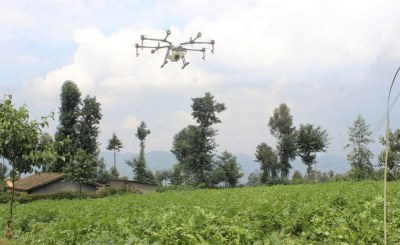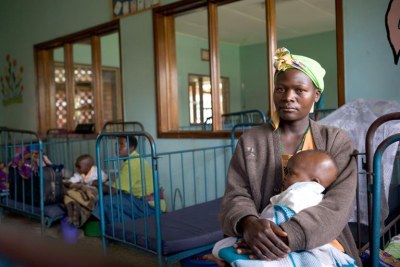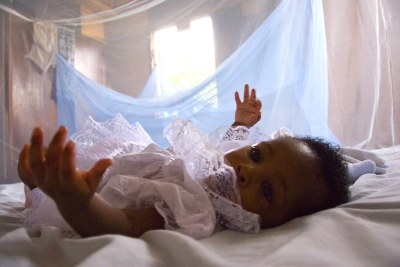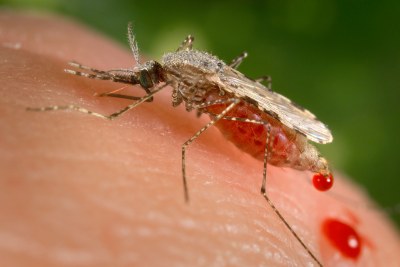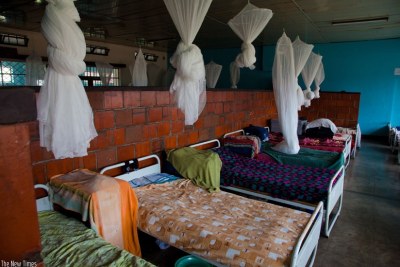-
Africa: Ending Malaria Needs to Focus On Poverty - Quick Fixes Won't Cut It
The Conversation Africa, 14 October 2021
Globally more than 400,000 people die of malaria annually. Africa carries a disproportionate burden of the disease. In 2019, 94% of deaths and cases were recorded in the region. Read more »
-
Kenya: Kenyan Doctor at Centre of Ground-Breaking Malaria Vaccine
Nation, 14 October 2021
A top Kenyan scientist who participated in a ground-breaking medical research is confident of a malaria-free future after the World Health Organization (WHO) approved the first… Read more »
-
Africa: New Malaria Vaccine to Benefit Hundreds of Thousands of African Children
VOA, 14 October 2021
The World Health Organization's endorsement of the world's first malaria vaccine marks a major advance against the mosquito-borne illness, which kills some 265,000 children in… Read more »
-
Ethiopia: Climate Action to Assure Sustained Recovery From Covid-19 #AfricaClimateCrisis
Ethiopian Herald, 14 October 2021
Many policies and individual choices have the potential to reduce greenhouse gas emissions and produce major health co-benefits. For example, cleaner energy systems, and promoting… Read more »
'Ending Malaria in Africa Needs to Focus on Poverty'
Annually, more than 400,000 people die of malaria worldwide. Africa carries a disproportionate burden of the disease. In 2019, 94% of deaths and cases were recorded in the region.
History shows that two centuries ago, malaria was ravaging some countries in Europe at rates similar to those being experienced in Africa today. In Italy for example, at the end of the 19th century there were two million cases of malaria annually and 15,000 to 20,000 deaths each year. By 1970, the World Health Organisation (WHO) had declared Italy malaria free.
There is a very stark contrast between how Europe responded to malaria back then and how Africa - and countries in other developing regions - continue to approach the problem.
There are intrinsic differences between Europe and Africa. These include the climate - Europe is, on average, much cooler - and the capacity of local mosquitoes to transmit malaria. But the underlying driver of malaria in the two continents is the same.
To achieve malaria elimination on the continent, Africans need to own the agenda. External partners must support the local agenda and avoid any sense of supremacy. This can be done in a number of steps.
African politicians, economists, scientists, and their partners need to rethink the current approach to malaria elimination. They should develop a strategy that is locally driven, long term and embedded in a larger country development plan, writes Silas Majambere for The Conversation.
InFocus
-
The World Health Organization (WHO) is recommending widespread use of the world's first malaria vaccine, in what the UN health agency's chief described as "an historic day" for the ... Read more »
-
Scientists from the London School of Hygiene and Tropical Medicine and their colleagues at the Institut de Recherche en Sciences de la Santé in Burkina Faso and the ... Read more »
-
Writing for The Conversation, Jonathan Cooper and Julien Reboud of the University of Glasgow have shared how their "origami" diagnostic system - which combines the accuracy of a ... Read more »
-
The government has received a U.S.$53 million grant from the Global Fund as a contribution towards the U.S.$280 million required for malaria prevention and treatment efforts from ... Read more »
-
The study by the Kenya Medical Research Institute (Kemri) Wellcome Trust Research Programme comes as Kenya seeks an alternative malaria treatment given the emergence of resistance ... Read more »
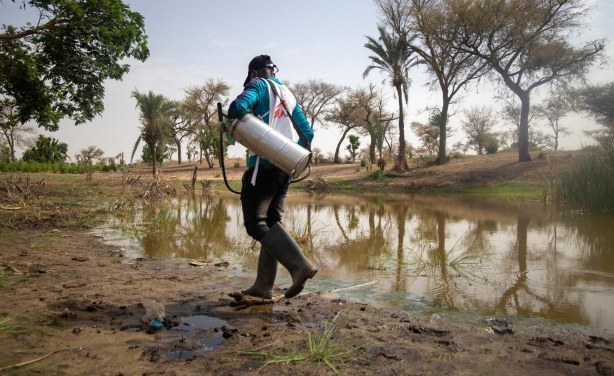
MSF teams treating the different water points in the village of Ara in the commune of Bandé in the department of Magaria in south of Niger (file photo).
